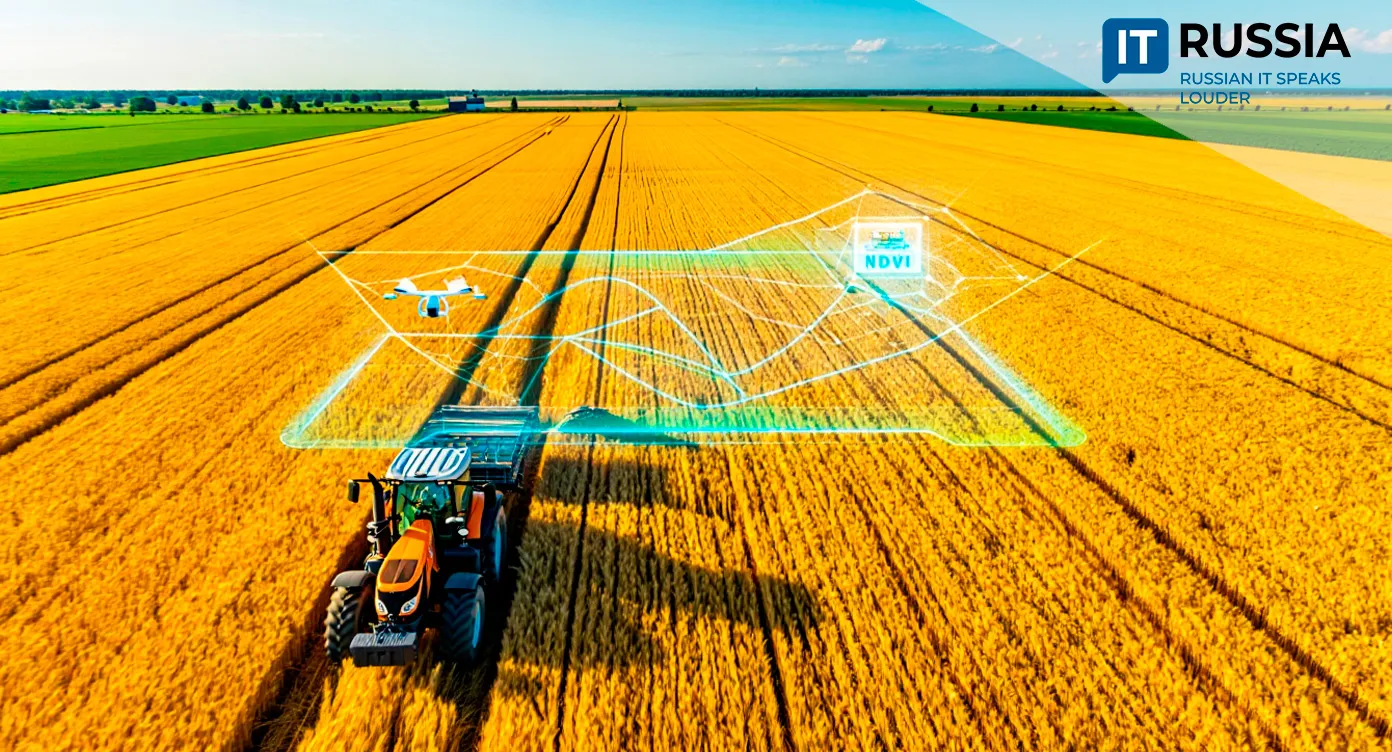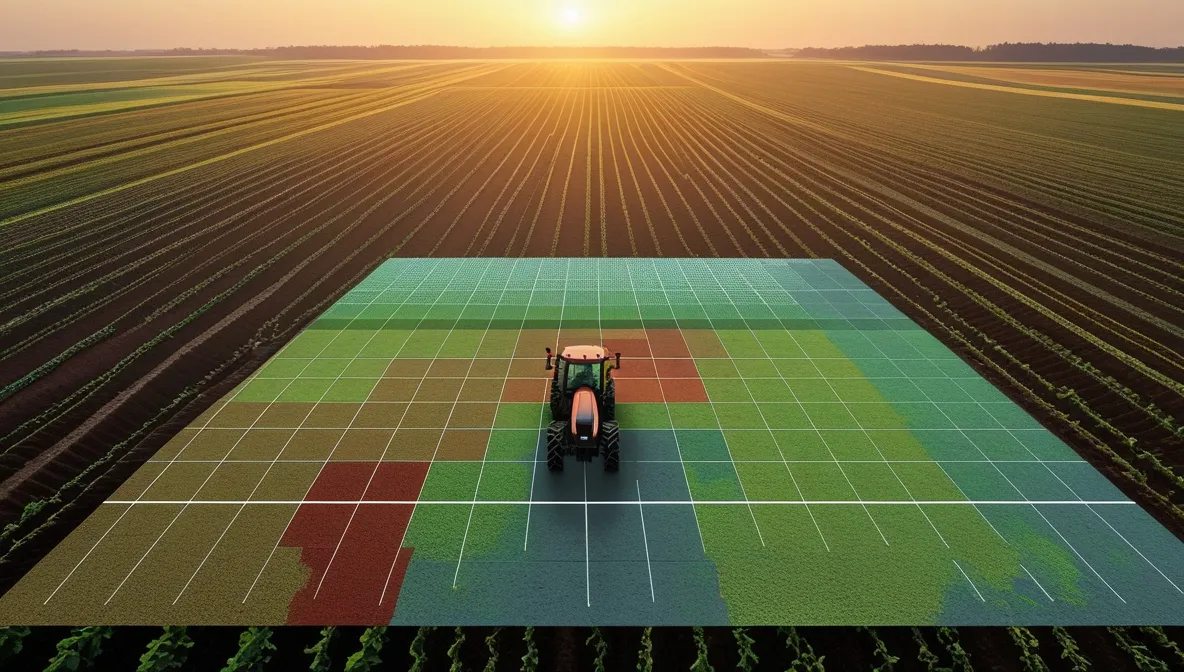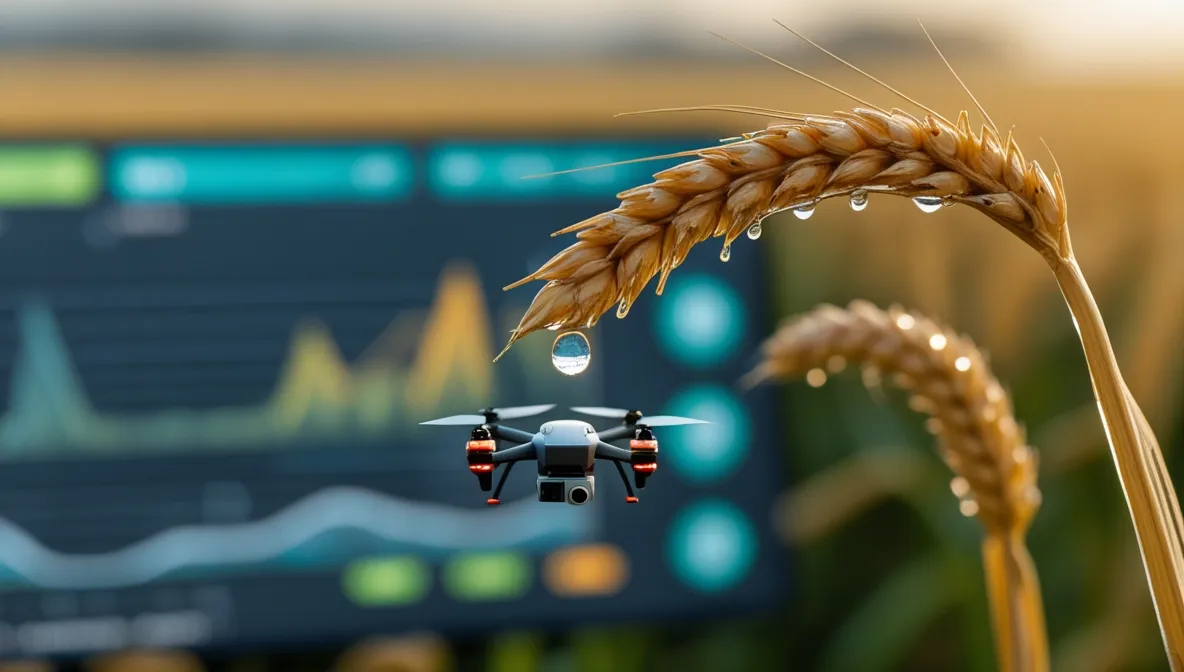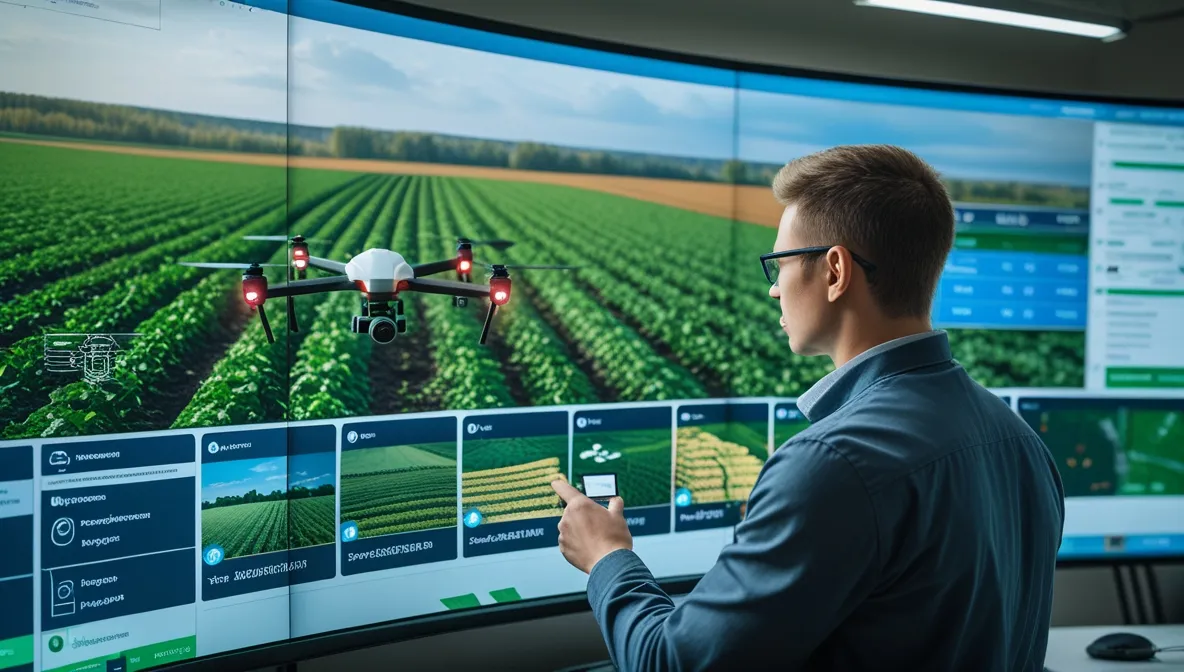A New Philosophy in Agriculture: Managing Every Square Meter
Smart farming systems have become a real working tool for Russian farmers, bringing artificial intelligence, satellite monitoring, and automation into everyday agricultural practice.

Satellite Monitoring for Crop Growth
The digital transformation of Russian agriculture is entering a new stage. The Kuban region — Russia’s traditional breadbasket — is becoming one of the country’s centers of digital farming. Precision agriculture has evolved into an everyday production tool. According to Pavel Nefedov, Head of R&D at Progress Agro Group, large-scale use of artificial intelligence (AI) helps optimize production processes, increase yields, and reduce costs.
One of the key technologies is the NDVI satellite monitoring system. Using this tool, the company scans over 20,000 hectares of farmland weekly to assess vegetation indexes. This makes it possible to monitor plant health and detect issues such as water or nutrient deficiency, or disease onset.

“By identifying and eliminating stress factors in time, we reduce annual crop losses by 1–3%. This is achieved through rapid response and targeted interventions like spot irrigation, fertilizer application, or pesticide treatment,” explained Nefedov.
Digital Eyes on the Combine Harvesters
Progress Agro has implemented an advanced autonomous driving system across its fleet of combines, tractors, and sprayers. RTK transmitters installed in the fields allow centimeter-level precision — as fine as 2–3 cm — improving operation quality, reducing driver fatigue, lowering fuel consumption, and increasing efficiency.
Savings on resources such as seeds, fuel, and fertilizers reach up to 7% compared to previous levels. The company is also testing an alternative video-based autonomous driving system that uses cameras mounted on combines. AI processes the live video feed to detect the boundaries between worked and unworked areas and to maintain accurate navigation automatically.
Another key innovation is the variable-rate fertilizer application system, based on electronic soil fertility maps and NDVI data. This reduces fertilizer use by up to 20% in less fertile areas while increasing yields by as much as 15% in problem zones. Overall, the average yield growth across the farm has reached 1–2 centners per hectare

A proprietary network of meteorological stations provides real-time data on temperature, humidity, precipitation, and wind speed — enabling rapid assessment of weather threats and proactive responses.
AI Agronomist and the Next Frontier
The company is developing an AI Agronomist — a system for processing large volumes of agricultural data (Big Data) to identify hidden patterns and predict outcomes. Machine learning algorithms analyze 15 years of historical data to provide precise recommendations and yield forecasts based on completed field operations.

A mobile app already uses neural networks to instantly detect crop diseases and pest infestations and recommend appropriate treatments. Progress Agro is transitioning from managing entire fields as single units to managing every square meter individually, based on its unique characteristics. The ultimate goal is to create a unified digital ecosystem that integrates all production processes. Using AI-driven analytics, the system will coordinate robotic machinery, drones, and satellite inputs — forming a fully automated, data-driven farm management cycle.
Production and Export Potential
More than 60% of large Russian agroholdings already use precision agriculture systems, and around 30% of small and mid-sized farms have undergone digital transformation. Annual investment growth in digital agriculture averages 13%.
According to RBC estimates, as AI and digital platforms spread through Russia’s agricultural sector, gross value added could rise by 25% in crop production and by 13% in livestock farming. Digital platforms are becoming a cornerstone of the industry’s evolution. Increasing yields and reducing losses — especially given Russia’s vast agricultural areas — will lead to lower production costs and, ultimately, more affordable food. With food security already ensured domestically, Russia is poised to strengthen its position on the global agricultural market. Proven Russian AI-driven management systems for agribusiness hold strong export potential, especially for developing countries seeking to improve efficiency and sustainability.










































